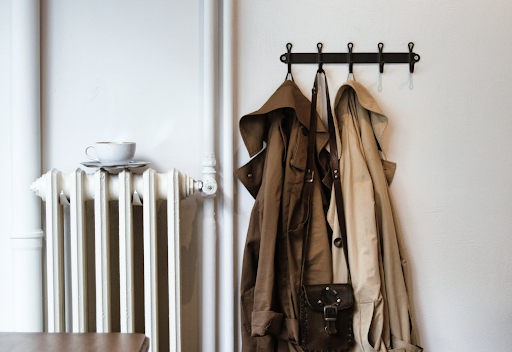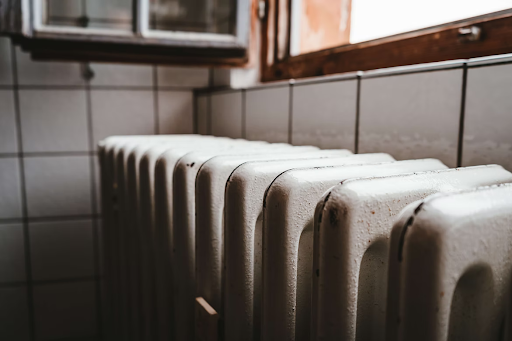Boilers, like electricity, are one of the things you take for granted every day. You use them to heat your homes and rely on them to provide hot water when needed. While a boiler is relatively simple in operation, several variables can affect its efficiency and effectiveness. It is essential to be aware of these variables when deciding which boiler might be right for you. This post will explain how a boiler works, the main types you can choose from, and some steps that will enable you to make an informed decision.
What To Keep In Mind When Choosing A New Boiler
When in the market for a modern boiling system, there are several things that you should keep in mind.
Cost And How You Will Pay For It
These systems tend to be on the pricier side of things due to their complexity. However, price shouldn’t be the only aspect you consider. Most modern boiler companies will offer ways to pay, such as installment plans, zero down payments, and even the chance to install now and purchase at a later date. In fact, you should choose a company that can provide you with a solid quote that can allow you to plan for the purchase better. The boiler professionals, Boiler Central Ltd, state that you will receive a fixed quote for your consideration via their online ordering system after answering a few questions. Once you have a price, you can begin to look at the various payment options that suit your particular situation.
Check The Warranty
A boiler is something that you want to set up and forget about. However, in some cases, they can break down, or parts wear out. In this case, you will need to be assured that the warranty that comes with the device is robust enough to cover most eventualities. A typical boiler warranty should last anywhere from 5 to 15 years. However, the better manufacturers will offer more extended warranties to demonstrate their confidence in their products.
How Do Boilers Work?
You have to know what type of boiler, you have to understand how it works. Through a series of gas flames, it pumps the circulated water through the pipework. Similarly to when water boils in a pan or kettle, the water passes through the fire and is heated. Nowadays, modern homes use this water for two purposes:
- Central heating: With central heating, the radiators are heated with hot water from the boiler. Consequently, the heat is distributed throughout the space.
- Providing hot water: The boiler’s second function is to heat water. It accomplishes this task by pumping circulated water on top of the flame, much as it does for central heating.
Boilers come in a variety of types and operate differently.
Condensing Boiler
By using condensing boilers, the heat is effectively recycled twice. Flames are used to heat water by first heating the pipes. The heated water is then delivered to the radiators, tanks, or taps. The cold water comes from the other direction, which allows it to heat up from the surrounding hot air. Consequently, water begins to heat up before reaching the flames. This type of boiler has been required by law in the UK for several years, meaning that all new boilers must be a condensing type.
Regular Boiler
Hot water is heated in separate circuits and pumped to heaters via circulation. Cold water from the mains is fed into the tank via a cold water tank in the attic space. The boilers were once standard in every home before the 1970s, but they are now considered obsolete and sometimes even unsanitary.
System Boilers
Unlike heat-only boilers, system boilers have their hot water tanks fed directly from the mains water supply, not by a separate cold water storage tank. This causes them to take up less space, but still, have the same disadvantages as traditional systems.
Combi Boiler
Combi boilers are better suited to small and average-sized homes. In these devices, hot water circulates throughout the primary central heating system. Furthermore, the incoming water is heated rapidly when a hot tap is turned on, meaning that hot water is always available. Also, they take up very little space since storage tanks are not necessary. However, their main drawback is that pressure will drop when multiple people simultaneously turn on hot taps or showers. The temperature will be much lower because the unit’s heating capacity will be exceeded. Since they depend on mains water pressure, they are incompatible with low-pressure areas.
Think About How Much Space You Have
When on the lookout for a replacement boiler, you must consider the size of your home. This is regarding the power you need to heat the space and the physical space you have in the location you will have it fitted. You need to be sure that your home has enough space to accommodate a more extensive boiler system if you plan on getting one. A combi-boiler may be the best choice if your room is small.
Take A Look At Your Current System
You may wish to upgrade your current boiler system or keep the old one when replacing your existing boiler. It might be necessary to upgrade your system if your current one is not sufficiently heating your house. Alternatively, if it heats sufficiently, you could have it serviced to make it more efficient.
Know the Efficiency Rating
When choosing a new boiler, you should look at the efficiency rating of the options available. They come in 7 bands, and you should aim to get the most efficient one possible within your budget. The bands are:
- A: 90% +
- B: 86-90%
- C: 82-86%
- D: 78-82%
- E: 74-78%
- F: 70-74%
- G: Less than 70%

Choosing a boiler can be a daunting task. There are a lot of different factors to consider before making a final decision. Some boilers may be more powerful or more efficient, or they may cost less to operate. There are lots of suitable boilers on the market, but only one will be right for you.
Published on Holr Magazine


